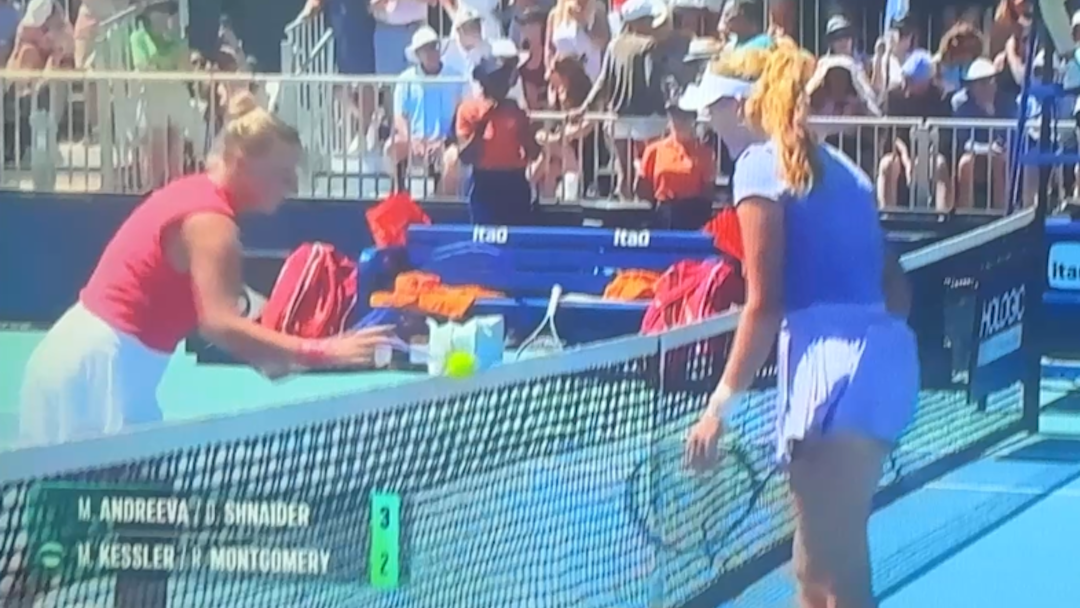I am going to start this post with a provocative statement. Whoever came up with the USTA Adult Tournament Ranking System does not understand how tournament rankings should work. Period. I am astonished that these errors ever existed in the first place. It is profoundly disappointing that attempts to highlight these issues have gone unaccepted and unacknowledged.
(I apologize for being so blunt. This is a post that I need people to read. Unfortunately, being outrageous or controversial is the best way to get people to “click through” on the modern internet.)
After yesterday’s overview post on the NTRP National Championships, it seemed like a good time to take another look at NTRP National Ranking Points calculations to see if any of the issues documented last year have been fixed. Additionally, since the NTRP Singles National Championships were recently conducted (April 1-3) and the rankings list updates have already been posted, we have a fresh set of data from a marquis USTA event to examine.
Surprise!
I elected to focus on the Men’s 3.0 18+ division held at Surprise. That was the first NTRP National Tournament listed in the USTA tournament query. Additionally, Men’s 3.0 is the first division listed on the tournament page. I didn’t cherry pick these results. To the best of my knowledge I don’t know anyone in the draw.
Congratulations to Rene Dipus from Winter Park, Florida! He won Men’s 18+ 3.0 Championship. The USTA ranking software awarded him 30 participation points and 2217 rankings points in addition to the trophy. Consulting the USTA Adult Tournament Ranking System reveals that the Champion of Level 1 tournaments should receive 30 participation points and 3000 rankings points. Rene was shorted 783 rankings points. So right off the bat, yes there are still issues.
Is it a policy issue, a software issue, or both?
The NTRP National Championship uses preliminary Robin Pools that feed into a Championship bracket. The following clip is the points tables that corresponds to that draw format for the USTA Adult Tournaments Ranking System policy document.

Without further investigation, it is clear that there is a policy issue with the tables. The format of the draw selected determines the number of rankings points that are awarded to competitors. The Champion in a Level 1 tournament is supposed to be awarded 3000 rankings points. However the table for this format involves a calculation and establishes that number as a cap on the number of points that a player can receive.
I have said it before and have said it again, the rankings points awarded to tournament participants should be based on the order of finish with consistency across all draw formats. This is an immutable fact to anyone with a basic understanding of tournament ranking systems.
Checking the Math
Rene was fortunate to be in a “full” preliminary round robin pool with 4 players. He went 3-0 in pool play and thus should have received 231 points for each of those wins for a total of 693. That number corresponds to the maximum number of points in a preliminary round robin pool listed in the USTA table for this draw format.
Since the tournament did not attract 32 competitors, there were only 6 preliminary round robin pools. That means that two players received byes in the Championship bracket. Rene was unfortunate to have received one of those byes. Why? Because the points table for this draw format awards points per round in the Championship bracket and he did not get to play all rounds.
Each win in the Championship bracket is worth 762 points and there are a maximum of three rounds in this format. Paradoxically, the maximum number of points that a competitor can win is listed as 2307 rather than 2286 which would be the total for winning three rounds.
In the past I chalked that discrepancy up as a math error. However, my thinking has evolved and I now believe that the number is intentional. The number in the table makes the maximum points listed for the preliminary round robin stage (693) and the maximum number of points from the Championship phase (2307) total 3000. As they should.
It is a bizarre inconsistency. The “wrong” number of 2307 reflects a vague understanding that the Champion of a Level 1 tournament should receive 3000 points. The math error is potentially intentional to make sure that competitors don’t exceed 3000 points. Somehow the fact that the Champion should always receive 3000 points is elusive.
In any case, Rene should have received 1524 points for winning the semis and the finals in the Championship stage. Combined with the 693 points he received from the preliminary round robin, that totals 2217 points. That is precisely the number of points that his received for this tournament. The calculation performed by the ranking software is correct.
In other words, Rene did not receive the points he should have for the event due to the number of players that entered. While he was fortunate to max out his points in the preliminary stage he was penalized for receiving a bye in the Championship bracket. Once again the USTA tables reflect a profound lack of understanding on how tournament rankings systems should work.
This is a USTA policy issue. The software matches the policy and cannot be blamed in this instance.
Finishing Shots
Once again, congratulations to Rene Dipus for winning a National Championship. It is unfortunate that he didn’t get all the rankings points he deserved. Rene may not care because he has been bumped up to 3.5 this year. Other players in this tournament that have the same issue might have more of a vested interest.
I landed on this topic after writing an overview of the NTRP National Championships aimed at Senior age group players who need a quick primer on the format. That interest in that community stems from “strong encouragement” from the USTA to migrate toward the format of play used in the NTRP National Championship events.
Data points like these are the reason that the seasoned Senior tournament players have responded with a resounding “Hell No.” It is not that Senior players are against change, but rather because the desired changes do not seem to make sense to that community of experienced tournament players.
Tomorrow we will evaluate other scenarios that have been issues in the past for this same NTRP tournament.
As an endnote, I have written a lot on this topic in the past. The following three posts culminate with what an order of finish approach to the rankings tables should look like. It is a draft that could be a great starting point for fixing the policy issues if anyone ever cared to take that on.
- When a USTA Level 4 Tournament… Isn’t. Outlines the case for why the draw format of a tournament should not materially alter the rankings point allocation for the players. This post used the Texas Masters tournament as the backdrop. (November 12, 2021)
- Texas Understood the Assignment: The Rankings Matter. Explains that the frustration expressed by the tournament players in Texas over the points awarded at the Masters is because they are responding to the incentive of NTRP Nationals exactly the way the USTA hoped that they would. By caring. (November 13, 2021)
- The Fix is In: Repairing the USTA Tournament Points Allocation Tables. Provides a great starting point for using a single order of finish rankings points table. If you are one of those people that wants to go straight to the answer, this is the post to read. (November 13, 2021)
- USTA National 18+ NTRP Singles Championships, April 1-3 2022, Surprise, AZ.
- 2021 USTA Adult Tournaments Ranking System, USTA Resource, effective January 1, 2022, viewed April 8, 2022.
Todays banner photo was originally posted by Kevin Cates on the “Traveling Circus” Facebook Group for active tournament players in Texas.




The website for national rankings used to be very good. Now it’s a horror story. Can’t find anything anywhere. Same for tournament searches. Why doesn’t USTA fix it? Everyone I know complains. Don’t they know it needs fixing? Is there someone to contact who might listen?
I was recently told that the USTA website falls under the marketing department. If so, that is an unusual place to find that responsibility. I would not ordinarily expect marketing to have the core competencies needed to hire and effectively manage the technical talent needed. Additionally, I am not exactly impressed with USTA marketing in general. That observation is not limited to digital presentation products. There doesn’t appear to be a lot of organizational accountability in general at the USTA, and from an external perspective, marketing looks to be one of the worst performing areas.
I also continue to collect breadcrumbs of evidence that the data presentation issues on the website are rooted in poor organization and structure in the underlying data architecture and data management systems. I would love to see the information model for the USTA systems, but would be willing to wager that it doesn’t exist and that whoever is responsible for the IT systems doesn’t even understand the assertion embedded in that last statement.